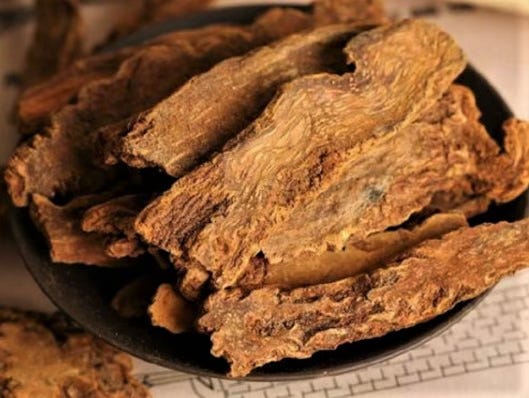Exploring Suo Yang (锁阳 - Herba Cynomorii): Bridging Traditional Chinese Medicine and Modern Western Analysis
Introduction
Suo Yang, scientifically known as Herba Cynomorii, is a Chinese herb deeply rooted in traditional Chinese medicine (TCM). Known for centuries, Suo Yang has been traditionally used to enhance vitality, promote kidney health, and address issues related to reproductive function. In this blog post, we will delve into both the traditional Chinese…



